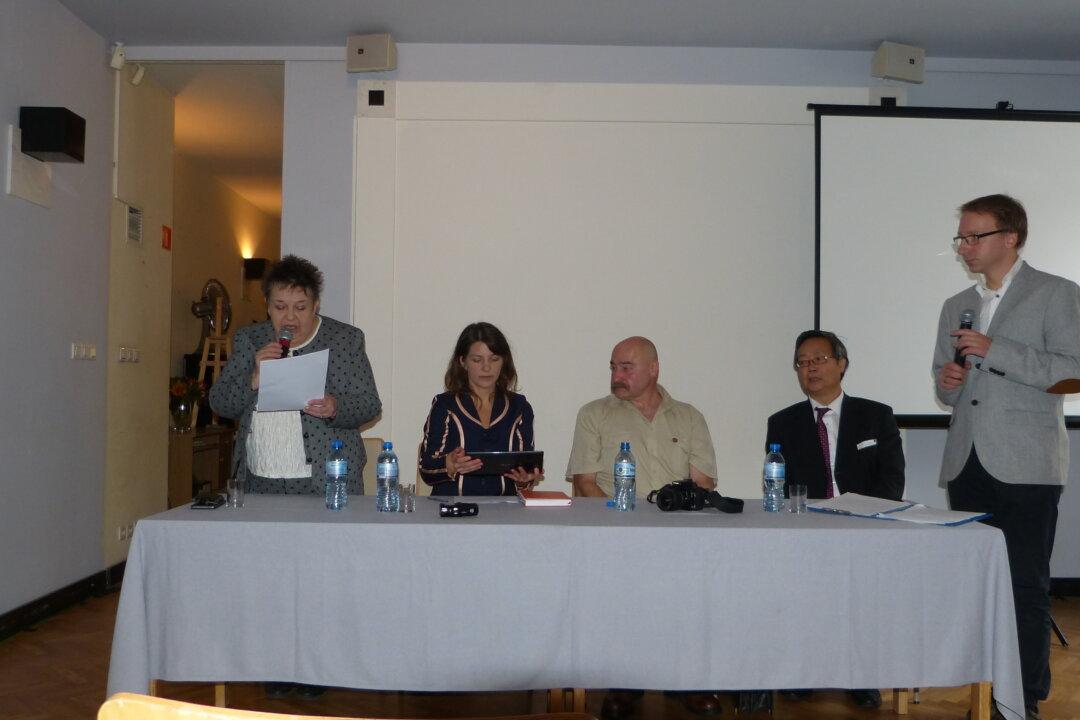WARSAW—Many of them, like Oles Shevchenko, former leader of the Ukrainian Republican Party and signatory of the Declaration of Independence of Ukraine, did hard time in Soviet-era gulags for daring to speak up for human rights at a time when trampling them was policy for communist hardliners at the seat of power.
Some, like David Kilgour, former Secretary of State of Canada and keen China watcher, traveled half way across the world to give voice to those silenced by state tyranny in China, like Tibetans, Uyghurs, Christians or the Falun Gong, whose organs are forcibly wrested from their bodies for profit and persecution. But one and all feel they must stand together and speak out against a new threat rising up in the East. And they’re doing it by sharing their perspectives, plights and appeals at an international conference in Warsaw, Poland called “The World Needs Solidarity.”
With the explosion of conflict around the world—the war waged by ISIS, a resurgence of Russian imperialism—we see a threat rising up against Baltic countries and we recall what happened in Chechnya. It was there that Putin began to construct his empire, and Georgia was next. The late Polish president Lech Kaczynski said in Tibilisi that today it’s Georgia, but tomorrow Ukraine, Lithuania and then Poland. And that indeed is how it might play out.
This ominous statement comes from Jadwiga Chmielowska, co-organizer of the Warsaw symposium and herself a former political prisoner, activist, journalist and member of Fighting Solidarity—a splinter group of the traditional Solidarity movement that aimed to go further in its aims and sought to completely oppose communism as a political system and categorically remove its functionaries from power. At this conference there was no shortage of voices that called for equally uncompromising resistance against oppressive regimes that seem not only oblivious to international opinion but appear keen to export not just cheap goods but repressive tactics.
That’s why from 2008 the proposal emerged that a so-called European Solidarity movement should be established. The speakers assembled here today, who meet on the occasion of the 25th anniversary of the establishment of Fighting Solidarity, say that the situation today is more perilous than in the 90’s.
Organizers are taking advantage of the fact that over 120 people will come as foreign elections monitors during Poland’s elections this weekend. Sinader Kadyrov from Crimea said outright that the future of Crimea, Ukraine, and Lithuania—and maybe even the world—depends a lot on the stand that the government in Poland takes. Solidarity was created in Poland in the 1980’s and now we need it again, Ms. Chmielowska said.
The conference, held at the headquarters of the Polish Journalists Association, features several topical panels exploring issues like energy security as well as manipulation and disinformation as a key weapon of hybrid warfare. The speakers, who hail from countries like Ukraine, Belarus, Georgia, Canada, China, Lithuania and Russia, will also be engaged in Poland’s parliamentary elections this coming Sunday in the role of official elections monitors; they delivered a report on their observations at a press conference on Oct. 26.





